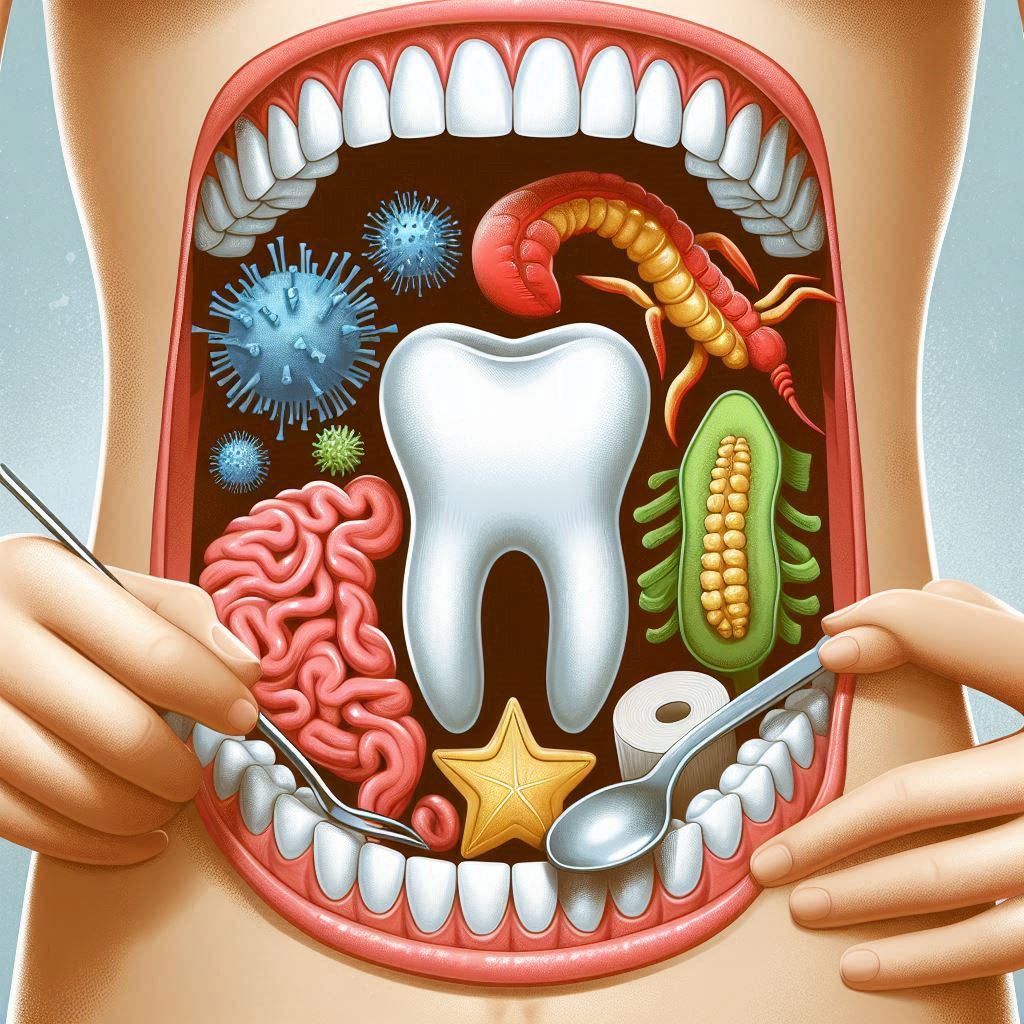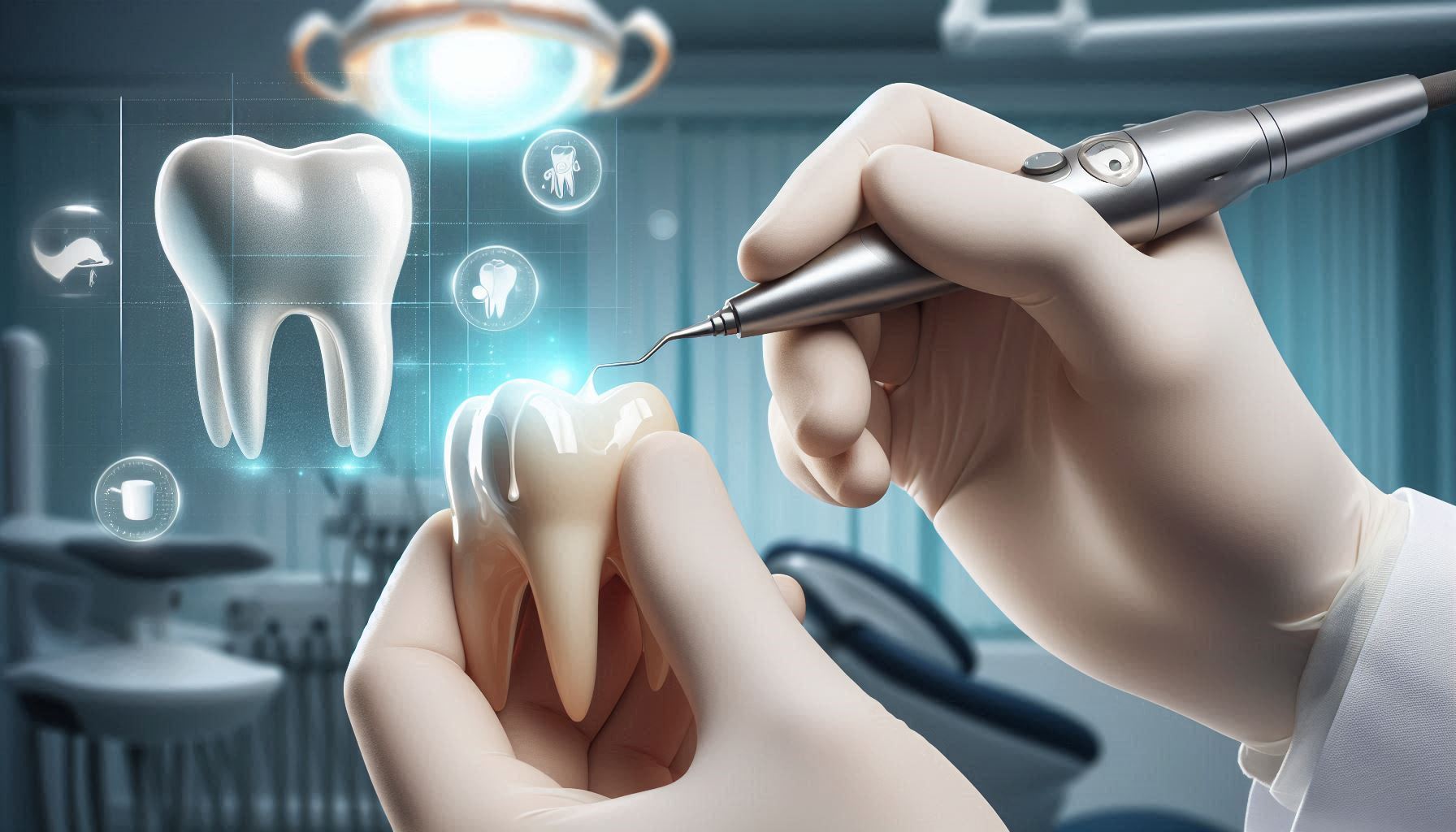Introduction
The connection between oral health and overall bodily health has gained increasing recognition in medical and dental research in recent years. Gum disease, or periodontal disease, is commonly viewed as a localized problem primarily affecting the gums, teeth, and surrounding tissues. However, mounting evidence suggests that gum disease can serve as a window into broader health issues, including those related to the digestive system.
Gum disease, which involves inflammation and infection of the gum tissues, can range from mild gingivitis to severe periodontitis, where the infection leads to tooth loss. Traditionally, the health of the gums has been considered independent of the rest of the body, but researchers are increasingly exploring how the oral cavity serves as an indicator of systemic health.
This guide will discuss the intricate connection between gum disease and digestive health, focusing on how the condition of your gums could provide vital clues about the state of your digestive system. We will examine the mechanisms that link oral health and digestion, including the role of bacteria, inflammation, and diet. Moreover, we will explore how improving gum health might lead to better digestive outcomes and vice versa.
The Link Between Gum Disease and Overall Health
The Importance of the Oral Microbiome
The human mouth is home to a diverse and complex ecosystem of bacteria, viruses, fungi, and other microorganisms collectively known as the oral microbiome. Ideally, the mouth hosts a balanced community of these microorganisms, which play a vital role in maintaining oral health. When this balance is disrupted, harmful bacteria can overtake beneficial microbes, leading to conditions like gum disease.
Gum disease is commonly caused by an overgrowth of pathogenic bacteria such as Porphyromonas gingivalis, Fusobacterium nucleatum, and Treponema denticola. These bacteria thrive in an environment where plaque accumulates, typically due to poor oral hygiene. Plaque is a sticky film of bacteria that forms on the surface of the teeth and gums. When plaque is not regularly removed through brushing and flossing, it can harden into tartar, which irritates the gums and leads to infection.
In addition to affecting the gums and teeth, harmful oral bacteria can enter the bloodstream through tiny cuts or inflamed gum tissues. Once in the bloodstream, these bacteria can travel to other parts of the body, including the digestive system, where they may have a direct or indirect impact on gut health.
Bacteremia and Its Systemic Impact
Bacteremia refers to the presence of bacteria in the bloodstream. In the case of gum disease, bacteremia is often a result of the oral infection spreading from the gums into the circulatory system. This phenomenon can have widespread consequences for systemic health, as harmful bacteria can travel to vital organs such as the heart, lungs, and digestive system.
Research has shown that individuals with severe periodontal disease have an increased risk of developing conditions like atherosclerosis (plaque buildup in the arteries) and endocarditis (infection of the heart lining). In the digestive system, bacteremia could exacerbate conditions such as inflammatory bowel disease (IBD) or irritable bowel syndrome (IBS). By compromising the gut’s microbial balance, harmful oral bacteria may contribute to digestive disturbances and inflammation.
Oral Health as a Reflection of Digestive System Health
The state of your gums can reveal a lot about your body’s overall health. A poorly maintained oral microbiome, which is the community of bacteria living in the mouth, can have systemic implications, particularly for your digestive system.
The Mouth and Gut Connection
The mouth is the first part of the digestive system and plays a key role in the digestive process. Saliva, produced in the mouth, is crucial for breaking down food and supporting digestion. It contains enzymes that begin the breakdown of carbohydrates and helps neutralize acids in the stomach. The health of the mouth, therefore, has a direct impact on digestion, particularly in the early stages of food processing.
Additionally, the oral cavity serves as a critical gateway to the rest of the digestive system. What happens in the mouth can influence the gut, as harmful bacteria in the mouth can enter the digestive tract when swallowed. This highlights a key relationship between the health of the mouth and the digestive system.
The mouth also contains a population of bacteria that is shared with the gut. These bacteria are part of the larger microbiome that influences digestion, nutrient absorption, immune function, and even mental health. An imbalance in the oral microbiome can have ripple effects throughout the digestive system, affecting everything from nutrient absorption to immune responses.
The Role of Inflammation in Both Gum Disease and Digestive Disorders
Inflammation plays a central role in both gum disease and many digestive disorders. Periodontal disease is characterized by chronic inflammation in the gums, which can lead to tissue destruction, tooth loss, and infection. Similarly, inflammatory bowel disease (IBD) involves chronic inflammation in the digestive tract, leading to symptoms such as diarrhea, abdominal pain, and weight loss.
The inflammatory cytokines (signaling molecules that mediate inflammation) produced in response to gum disease can affect other parts of the body, including the gastrointestinal system. Research has shown that systemic inflammation due to oral health issues can exacerbate existing digestive conditions or contribute to the development of new gastrointestinal problems.
For example, inflammation in the gums may activate immune pathways that increase the production of pro-inflammatory cytokines in the body. These cytokines may travel to the digestive tract, leading to conditions like leaky gut syndrome, where the intestinal lining becomes more permeable, allowing harmful substances to enter the bloodstream. This, in turn, can result in further systemic inflammation.
How Gum Disease Could Be Indicating Specific Digestive Issues
Many digestive issues, particularly those that involve inflammation, can be related to gum disease. Some of the most notable digestive conditions that may have a connection to gum disease include gastroesophageal reflux disease (GERD), Crohn’s disease, ulcerative colitis, and irritable bowel syndrome (IBS).
Gastroesophageal Reflux Disease (GERD)
GERD is a condition in which stomach acid flows backward into the esophagus, causing heartburn and potential damage to the lining of the esophagus. One of the often-overlooked effects of GERD is its impact on oral health. The acid reflux from the stomach can erode tooth enamel and cause gum disease by exposing the teeth and gums to stomach acid.
Moreover, the acid in the mouth may facilitate the growth of harmful bacteria, leading to further gum inflammation and infection. In individuals with GERD, it is essential to address both the digestive issue and the oral health issue to prevent further complications.
Crohn’s Disease and Ulcerative Colitis
Both Crohn’s disease and ulcerative colitis are inflammatory bowel diseases (IBD) that cause chronic inflammation in the digestive tract. Research has indicated that individuals with IBD have a higher prevalence of periodontal disease compared to the general population. The exact cause of this connection is not fully understood, but it is believed that chronic systemic inflammation and immune dysregulation play a significant role.
In people with IBD, the body’s immune system mistakenly attacks the digestive tract, leading to inflammation. This inflammatory response can extend beyond the digestive system, affecting the gums and leading to gum disease. Furthermore, the medications used to manage IBD, such as corticosteroids and immunosuppressants, can increase the risk of gum infections and poor oral health.
Irritable Bowel Syndrome (IBS)
Irritable bowel syndrome (IBS) is a functional gastrointestinal disorder characterized by abdominal pain, bloating, and changes in bowel movements. While IBS does not cause inflammation in the same way as IBD, it is still linked to disturbances in the gut microbiome. Research has suggested that individuals with IBS may have an increased risk of developing gum disease.
The connection between IBS and gum disease could stem from the role of inflammation and gut microbiota. In IBS, an imbalance in gut bacteria can trigger symptoms, and similar imbalances in the oral microbiome could contribute to the development of gum disease. Furthermore, IBS is often exacerbated by stress, which can also impact oral health, leading to teeth grinding or poor dental hygiene.
Celiac Disease
Celiac disease is an autoimmune disorder triggered by the consumption of gluten, leading to inflammation and damage to the small intestine. Individuals with celiac disease often exhibit oral manifestations, including gum disease, mouth ulcers, and delayed tooth eruption. The link between celiac disease and gum disease may be related to immune system dysfunction and inflammation, as both conditions involve an overactive immune response.
The Role of Diet in Gum and Digestive Health
Diet plays a significant role in both gum disease and digestive health. A poor diet can contribute to both inflammation and an imbalance in the microbial populations in both the mouth and the gut. Conversely, a balanced diet rich in nutrients can support oral and digestive health.
The Impact of Sugar on Oral and Digestive Health
One of the most detrimental dietary habits for both oral and digestive health is the consumption of high amounts of sugar. In the mouth, sugar serves as food for harmful bacteria, encouraging their growth and leading to plaque buildup, gum inflammation, and tooth decay. Sugary foods and drinks can also contribute to acid reflux, a condition that can damage the esophagus and lead to further oral health issues.
In the digestive system, excessive sugar intake can disrupt the balance of gut bacteria, promoting the growth of pathogenic microorganisms. This imbalance in the gut microbiome can contribute to conditions like bloating, diarrhea, and other gastrointestinal disturbances. Reducing sugar intake is essential for maintaining both gum and digestive health.
Fiber and Nutrient-Dense Foods
Fiber-rich foods are beneficial for both the gums and the digestive system. In the mouth, fiber helps to scrub the teeth, preventing plaque buildup, and it also stimulates saliva production, which neutralizes acids and supports oral health. In the digestive system, fiber promotes regular bowel movements, reduces constipation, and supports the growth of beneficial gut bacteria.
Fruits, vegetables, whole grains, and legumes are excellent sources of fiber. These foods also provide essential vitamins, minerals, and antioxidants that reduce inflammation in the body, supporting both gum health and digestion.
Sugar and Its Effects on Oral and Gut Health
High sugar intake is one of the primary risk factors for gum disease. Sugar feeds the harmful bacteria in the mouth, allowing them to proliferate and cause damage to the gums and teeth. Sugar also has a significant impact on gut health by promoting the growth of pathogenic bacteria, which can disrupt the balance of the gut microbiome.
A diet high in refined sugars can create a vicious cycle, as both your oral and digestive systems become more susceptible to inflammation and infection. Reducing sugar intake can benefit both your gums and your digestive system
Strategies to Improve Both Gum and Digestive Health
Taking a holistic approach to oral and digestive health is key to addressing the potential link between gum disease and digestive issues. Below are some strategies that can help improve both:
Practicing Good Oral Hygiene
Good oral hygiene is the foundation of gum health. Brushing your teeth at least twice a day with fluoride toothpaste, flossing daily, and using an antimicrobial mouthwash can help keep harmful bacteria at bay and prevent gum disease. Regular dental checkups and professional cleanings are also essential for detecting and managing gum disease early.
Maintaining a Balanced Diet
Eating a nutrient-rich diet that is high in fiber, vitamins, and minerals while low in processed foods and sugars is crucial for maintaining both oral and digestive health. Avoiding sugary snacks, sodas, and alcohol can help reduce inflammation and support the balance of beneficial bacteria in the mouth and gut.
Using Probiotics and Prebiotics
Probiotics, found in fermented foods like yogurt, kefir, and sauerkraut, can help promote the growth of beneficial bacteria in the gut. Prebiotics, which are found in foods like garlic, onions, and bananas, feed these beneficial bacteria, promoting a healthy gut microbiome. Additionally, some studies suggest that probiotics may help improve gum health by reducing inflammation and promoting a healthy balance of oral bacteria.
Managing Stress
Chronic stress can negatively impact both oral and digestive health by promoting inflammation and altering the microbiome. Practicing stress-reduction techniques such as meditation, yoga, deep breathing exercises, and regular physical activity can help reduce stress and improve both gum and digestive health.
Conclusion
The connection between gum disease and digestive health highlights the profound relationship between oral health and overall bodily function. The mouth is far from being an isolated part of the body; rather, it acts as a window into our general health. Gum disease, such as gingivitis and periodontitis, can signal underlying issues that extend beyond the gums and teeth, potentially revealing problems within the digestive system. This connection underscores the importance of maintaining oral health as a means of preventing or managing digestive disorders. When harmful bacteria from the mouth enter the bloodstream, they can travel to other parts of the body, including the gastrointestinal tract. This can exacerbate conditions like inflammatory bowel disease (IBD), irritable bowel syndrome (IBS), and even gastroesophageal reflux disease (GERD). Furthermore, inflammation caused by gum disease may affect the digestive system, leading to complications such as leaky gut syndrome, where the gut lining becomes more permeable, allowing harmful substances to enter the bloodstream.
Conversely, poor digestive health can also impact the mouth. Conditions like GERD can lead to enamel erosion and increase the risk of gum disease due to the constant exposure of teeth and gums to stomach acids. An imbalance in the gut microbiome, often caused by factors like diet or stress, may also contribute to oral health problems. By understanding the link between gum disease and digestive health, individuals can take proactive measures to safeguard both. Maintaining good oral hygiene practices, eating a balanced diet, managing stress, and seeking regular dental care are all vital steps. This holistic approach promotes not only healthier gums and teeth but also supports better digestive function, leading to a more balanced and overall healthier life.
SOURCES
Armitage, G. C. (2004). Periodontal disease: Diagnosis. Annals of Periodontology, 9(1), 37–44.
Berkowitz, R. L., & Amato, M. S. (2017). Oral health and the gastrointestinal system. Journal of Clinical Gastroenterology, 51(3), 189–194.
Bostanci, N., & Salvi, G. E. (2012). The role of oral microbiota in periodontal disease and systemic inflammation. Journal of Clinical Periodontology, 39(Suppl 12), 33–40.
Clements, D., & Williams, M. (2020). Link between gut health and oral health: An evolving paradigm. Frontiers in Medicine, 7, 98.
Gonty, M. G., & Seymour, G. J. (2018). Periodontal disease and systemic conditions: Implications for the treatment of periodontal disease. Journal of Periodontology, 89(12), 1424–1434.
Gurav, A. N., & Kumbhar, S. (2016). Impact of oral health on systemic diseases. Journal of Clinical and Diagnostic Research, 10(6), ZE05-ZE10.
Hajishengallis, G. (2014). The inflammophilic character of periodontal pathogens and its significance in the pathogenesis of periodontal disease. Journal of Periodontology, 85(12), 1569–1575.
Kaur, S., & Thakur, M. (2021). The microbiome and periodontal diseases: Implications for gut health. Journal of Oral Biology, 48(3), 256–263.
Kim, S. S., & Lee, H. W. (2020). Periodontal disease and gastrointestinal disease: A review of the evidence. Gut Microbes, 11(5), 1307–1324.
Lee, S. H., & Fabbri, S. (2018). Gut-brain and mouth-brain axes: Implications for periodontal health and systemic conditions. Journal of Oral Microbiology, 10(1), 1492220.
Li, X., & Zhang, L. (2022). The relationship between periodontal disease and digestive diseases. Journal of Periodontology, 93(7), 842–854.
Pihlstrom, B. L., & Michalowicz, B. S. (2005). Periodontal disease. Lancet, 366(9499), 1809–1820.
Sharma, N., & Neelam, R. (2021). Gum disease and its relationship with gastrointestinal health: A cross-disciplinary approach. Journal of Clinical Gastroenterology, 55(9), 850–858.
Siddiqui, A. S., & Khan, S. (2019). Oral health and gastrointestinal diseases: Exploring the possible links. World Journal of Gastroenterology, 25(2), 105–116.
Socransky, S. S., & Haffajee, A. D. (2002). Dental biofilms: Difficulties and implications for periodontal therapy. Journal of Clinical Periodontology, 29(2), 17–26.
Turan, S., & Caglayan, F. (2015). The connection between periodontal disease and systemic diseases: A review. Journal of Periodontology, 86(4), 455–463.
Waldron, L. M., & Pitts, C. (2013). The microbiome: Oral health and gastrointestinal diseases. Medical Journal of Gastroenterology, 65(1), 33–41.
HISTORY
Current Version
January 21, 2025
Written By:
SUMMIYAH MAHMOOD




